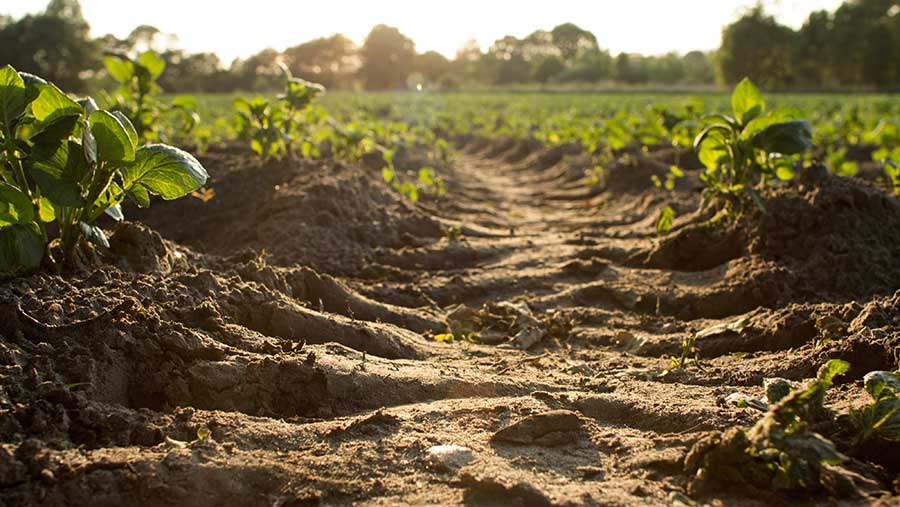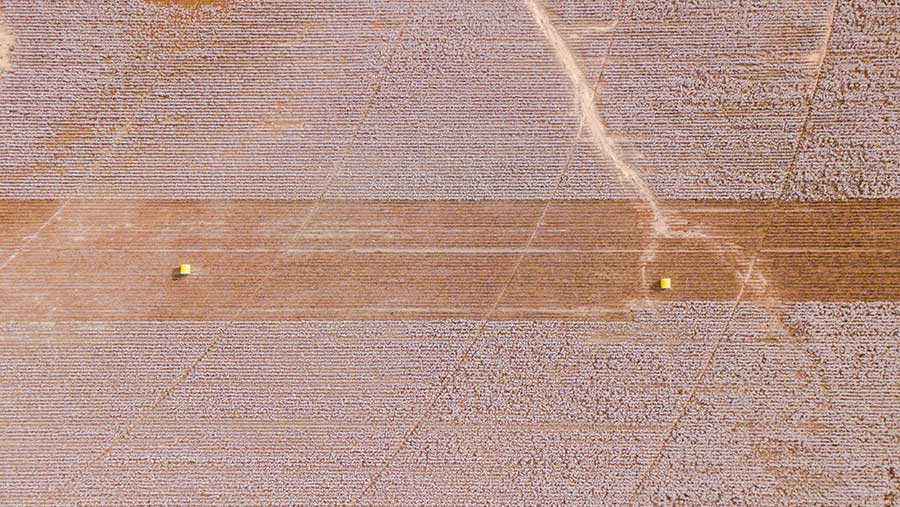
© Photo by Jordan Whitfield on Unsplash
By Honor Eldridge
For anyone working in the food and farming sector, the dramatic shift over the last few years will not have gone unnoticed. The environmental impacts of food production have taken centre stage. Farmers are now being invited, if not pressured, to help the UK achieve its climate and nature targets.
The new Sustainable Farming Incentive (SFI) is a prime example of this shift, funding a range of nature-friendly farming practices that will help protect the English landscape. The UK Government’s determination to encourage the adoption of more sustainable practices has placed added emphasis on soil health. Defra Minister, George Eustice, has promised that the UK’s soils would be “at the heart” of the UK’s new agricultural policy.
Just twelve months ago, the emphasis on soil carbon was not as pronounced as it is today. Now, however, there is growing recognition in every corner of the agricultural sector of the critical role they play in maintaining the health of our environment.
More emphasis also rests on the value of healthy soil to ensure that the UK continues to produce the best quality food in the world. Yet the recognition of the intrinsic value of soils to agriculture system has been long over-due.
Despite knowing that healthy soils are essential for food security, climate change and public health, almost a third of the world’s arable soils have been lost to erosion and pollution over the last 40 years. In the UK, we lose an estimated 2.2 million tonnes of topsoil each year, costing around £45 million per year, of which £9 million is in lost production and reduced yields.
Instead of degrading them, we need to invest in them and ensure that our soils remain carbon-rich and fertile.

© Photo by Jared Brashier on Unsplash
The increased focus on the role of agriculture to deliver a better environment and for agricultural soils to be a carbon store, has led to a national discussion about soil carbon credits.
Could sustainable farming practices help offset emissions elsewhere? Could these credits be sold through a marketplace? How could that trading system be built with confidence and integrity? While these questions are now being asked, the answers still remain unclear.
The creation of a system of soil carbon credits would bring a new revenue stream for farmers who worked to adopt tillage practices that improve soil health and would bring the UK closer to our net zero goals. But soil carbon credits are not the only conversation where these questions are pertinent.
Biodiversity Net Gain (BNG), Catchment Sensitive Farming programs, and even SFI, will rely on measuring the impact of soil management practices to demonstrate the environmental benefits.
Being able to accurately measure soil carbon in a consistent way (and the other associated environmental metrics) will therefore be a critical next step. Already a number of organizations are already piloting programmes to use technology to help farmers to collect and store the relevant data through drones, sensors and proxy metrics.
The goal is to enable data collection in an easy and straightforward way, minimizing the hassle to the farmer. One example is the Global Farm Metric that, in partnership with major UK retailers, has created a simple system with consistency that would gather the relevant data across multiple categories, with one being soil health.
However, this data will need to be verified. Retailers and consumers need to be able to trust the integrity of the data and ensure that it remains unimpeachable throughout the supply chain. This is particularly true when it comes to any future soil carbon marketplace which will require a high level of integrity.

© Photo by Dylan de Jonge on Unsplash
This is where SCI comes in.
Supply Chain In-Sites (SCI) aims to become a 3rd party validator in the UK food and farming sector for all carbon claims, whether for SFI, soil carbon credits or BNG.
Their goal is to become an industry leader for validated soil carbon data, with the goal of developing a platform that will enable real-time reporting. SCI’s process is underpinned by blockchain, ensuring that the data remains trustworthy and incorruptible at every step along the supply chain, while maintaining privacy over the reported data.
This means that the farmer can rest easy, knowing that their data is in good hands and that the data won’t be accessible to others unless they chose to share it. Secondly, it will give retailers confidence in the data, allowing them better insight into their own supply chain and its impacts.
Ultimately, this data could be communicated directly to the consumer at the point of purchase, allowing them a full and truthful picture of how their food was produced.
However, their aspiration is bigger. SCI ultimately aims to build a best-in-class carbon assessor team in the UK’s agriculture sector. They want to work with farmers (agroecological and conventional) to support them to deliver increasing on-farm carbon storage.
The goal is to build a team that can guide farmers through the soil carbon credit process and help them adopt more sustainable practices where appropriate to maximise their sequestration potential, and, by extension and where practical, potential carbon revenue.
These advisory services on regenerative farming techniques and other carbon- and nature-friendly practices will be delivered via a separate business to ensure the integrity of the verification activity.
The challenge of creating a more sustainable farming sector is significant. It will require huge shifts to achieve net zero by 2040, as promised by the NFU.
SCI wants to work with farmers to make that journey as easy as possible by eliminating hurdles and allowing the seamless flow of on-farm data. SCI believes that farmers are the best stewards of their land and wants to arm them with the right tools to achieve those goals.
Honor Eldridge sits on the Advisory Council of SCI, chaired by Professor Chris Elliott, OBE


